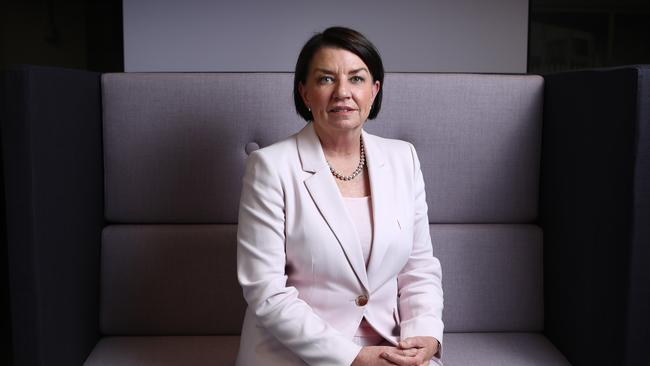Colonial First pays CBA $300m dividend as Slater & Gordon hits bank with class action
Savers in CBA’s underperforming super business Colonial First State have contributed a $300m kickback to the bank.

Long-suffering savers in Commonwealth Bank’s underperforming superannuation business Colonial First State have contributed a $300 million kickback to the nation’s largest bank for the second year in a row.
The bumper dividend payments, which bring the total paid to close to $1 billion over the past three years, come amid returns to members of Colonial First State’s $2bn FirstChoice Employer that have lagged the average not-for-profit industry fund by about 2.5 per cent a year the last five years.
They were made in the year to June 30, amid unprecedented scrutiny on the banking industry in the shape of a royal commission that has exposed widespread rorts and rip-offs in the sector, including superannuation.
A CBA spokesman said the dividend was “paid out of net profit after tax and derived from both super and non-super businesses” of the super trustee company, Colonial First State Investments.
In another hit to CBA yesterday, Slater and Gordon announced a class action lawsuit against Colonial First State over the low interest rates paid to members who put money into cash accounts that the law firm tips could top $100m.
And Australia’s biggest bank is to remain in the spotlight this morning, when chief executive Matt Comyn and deputy chief David Cohen face a grilling at the hands of members of the House of Representatives’ powerful economics committee.
Westpac boss Brian Hartzer and chief financial officer Peter King are to follow this afternoon, with ANZ’s Shayne Elliott and his deputy Alexis George taking their turn in the hot seat tomorrow.
As analysts tipped the fee-for-no-service compensation bill could reach as high as $2bn, the industry yesterday called on the government to help it out of a situation that royal commissioner Kenneth Hayne found in an interim report released a fortnight ago was primarily caused by “greed”. Australian Banking Association chief executive Anna Bligh called for new legislation outlawing grandfathered trailing commissions, which were allowed to continue when new such payments were outlawed in 2014 as part of Future of Financial Advice reforms.
She also said her members would tackle two other issues highlighted by the commission by taking new measures to stop charging fees for services they did not provide and tracking down and stopping fees charged to the dead.
“There is much more work for Australian banks to do, but banks are determined to learn every lesson, to fix every problem, and to repay every cent,” Ms Bligh said.
Consumer advocates said Ms Bligh’s promises didn’t go far enough, with Choice chief executive Alan Kirkland branding it a “cynical move” to “remove practices which are already illegal”.
“The crux of the problem is that commissions and sales incentives lead to people being taking advantage of and sold rubbish,” he said.
Consumer Action Law Centre senior policy officer Katherine Temple said it “shouldn’t take a scandal for the industry to agree to do the right thing by their customers”. “The industry has fought tooth and nail to keep these commissions even though they have been revealed by the royal commission to be one of the key drivers of bad behaviour.”
CBA’s super trustee, Colonial First State Investments, manages about $70bn and is part of a wealth management business the bank plans to spin off next year. Its investments have underperformed industry funds by about 2 per cent over the past five years.
Company accounts filed with the corporate regulator show that the 2018 financial year dividend was carved out of Colonial’s net profit after tax of $334m. That profit was an 8 per cent increase over the previous year’s $306m profit, when it also paid a $300m dividend.
For the 2016 financial year, Colonial paid a $268m dividend to CBA out of a $286.89m profit, bringing the total dividend reaped by the bank over just three years to $886m.
The dividends are calculated out of the net profit after tax and derived from both super and non-super businesses run by Colonial, which manages the super savings of members in Commonwealth Essential Super, FirstChoice Superannuation Trust, the Colonial First State Pooled Superannuation Trust and the First State Rollover and Superannuation Fund.
Unlike the union-and-employee-backed industry fund sector, which operates on a profit-to-member basis, the bank-run retail super sector generates a profit from its nest egg businesses from a range of fees and commissions charged between various arms of a large financial corporation. For example, CBA’s financial advisers, funds managers and life insurance business CommInsure all clip a ticket on customers’ retirement savings.
The Productivity Commission earlier this year found that high fees were the main cause of the retail super sector’s entrenched underperformance, which sucked the ability for savers to amass decent retirement balances. The royal commission revealed major vertically integrated wealth managers were horribly conflicted by failing to require decent standards of performance while at the same time handing over unnecessarily large fees for subpar products.


